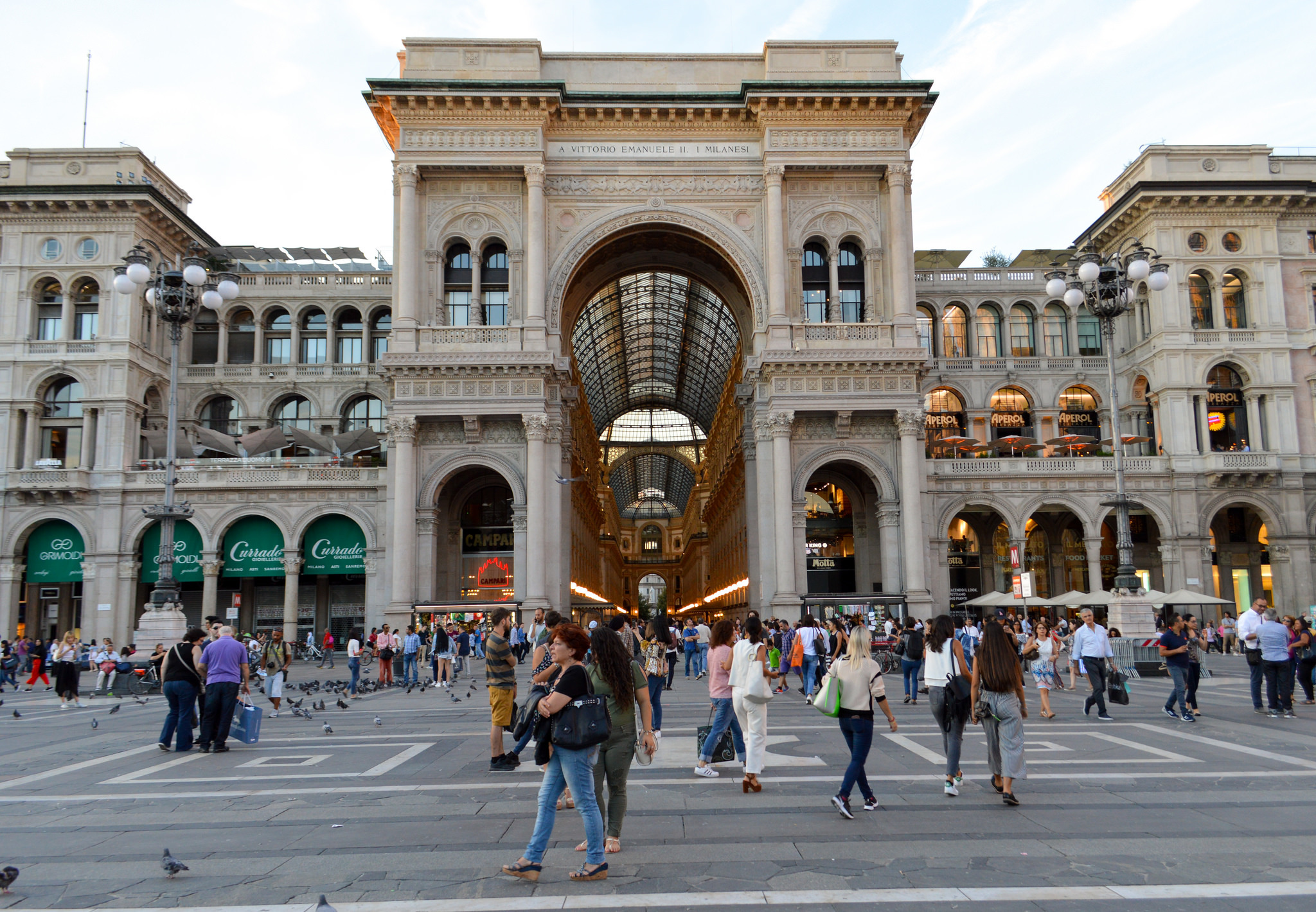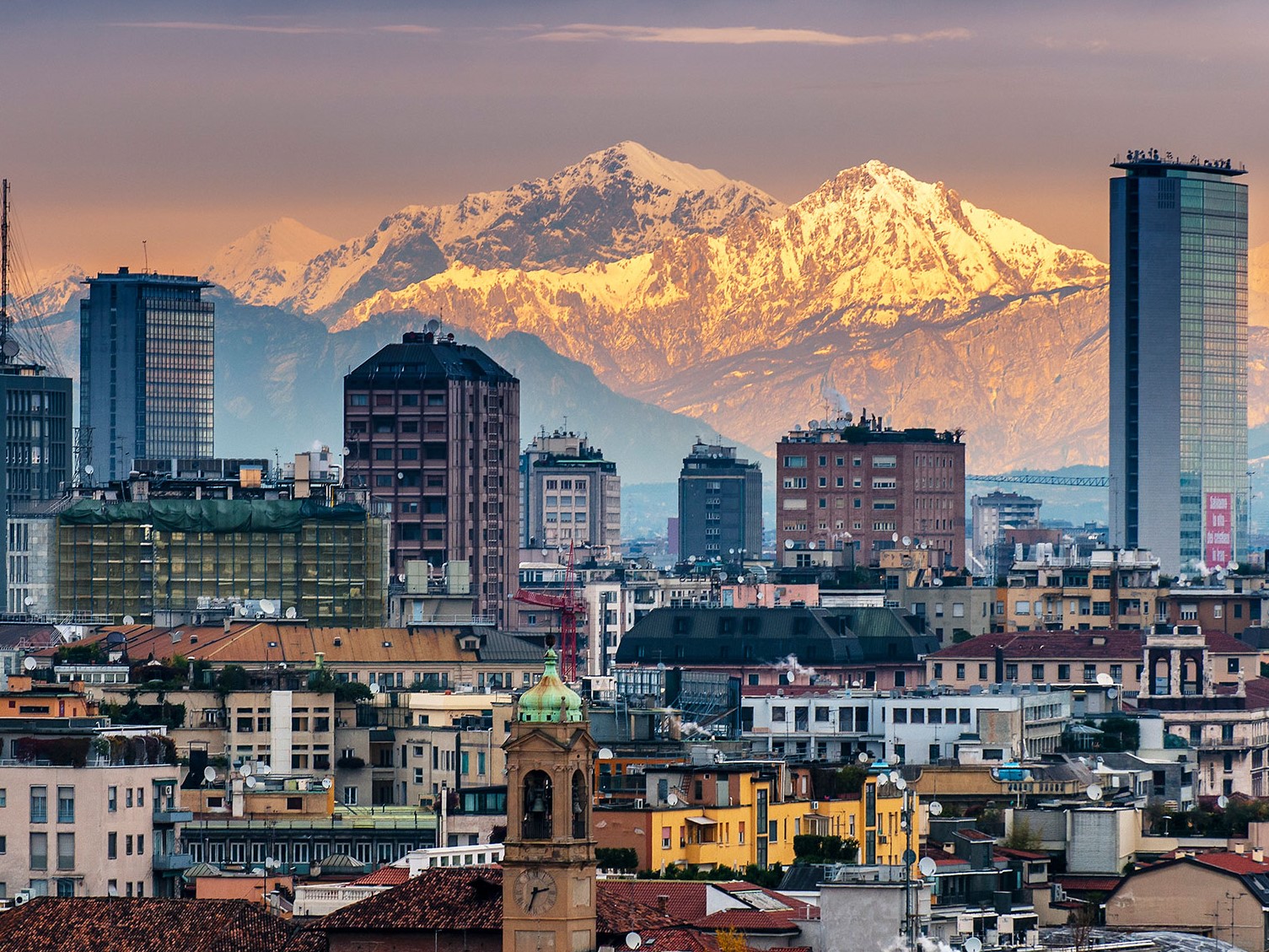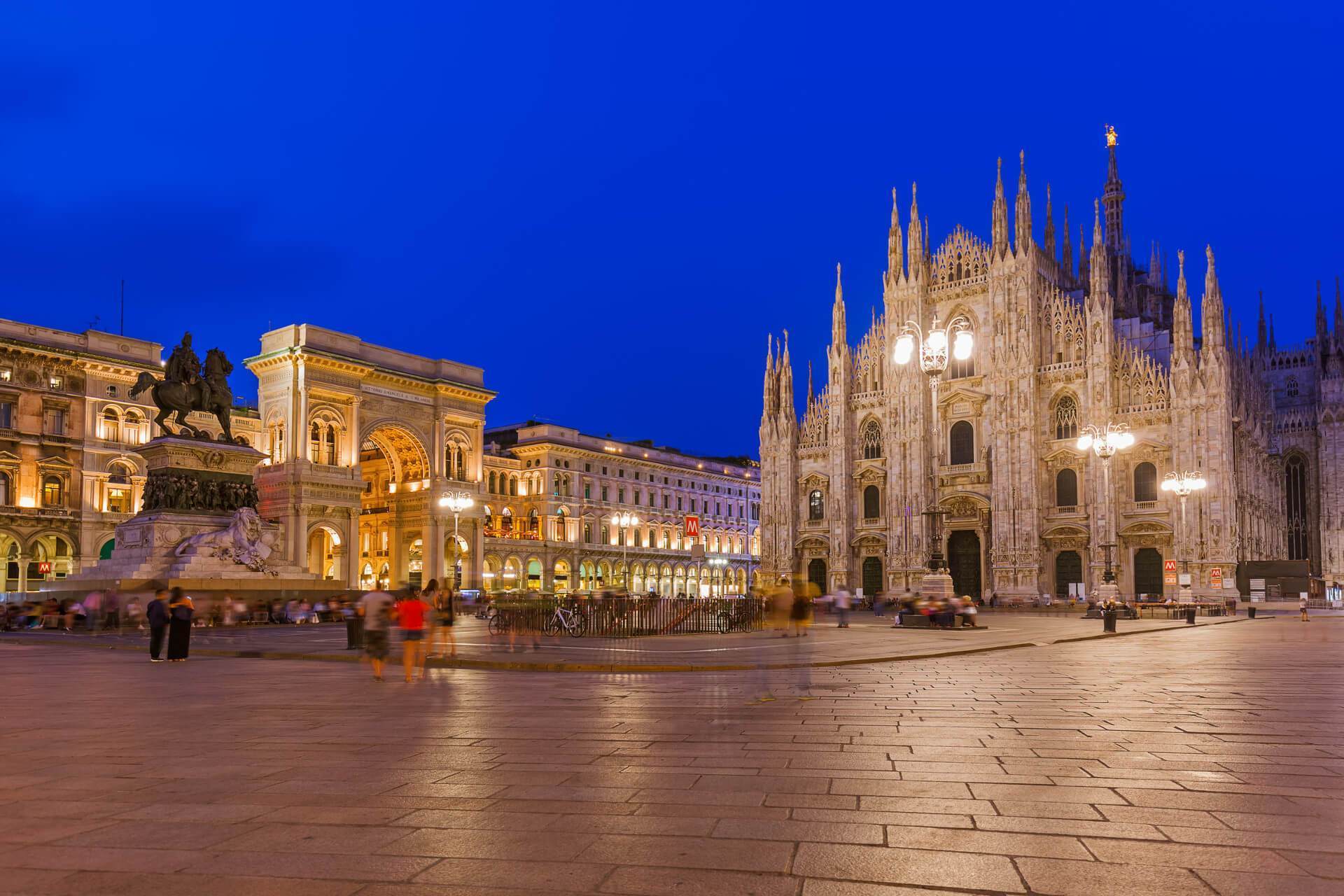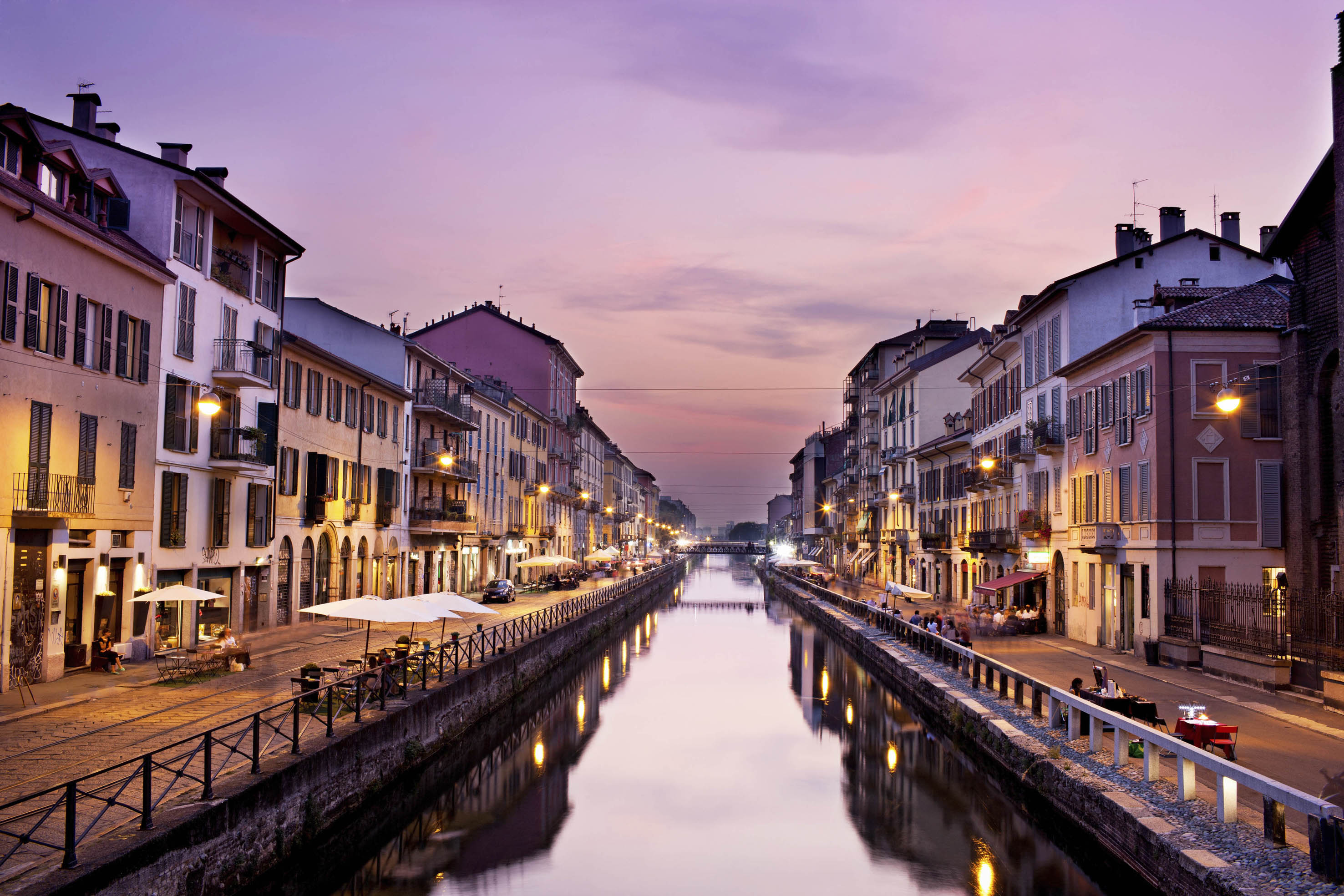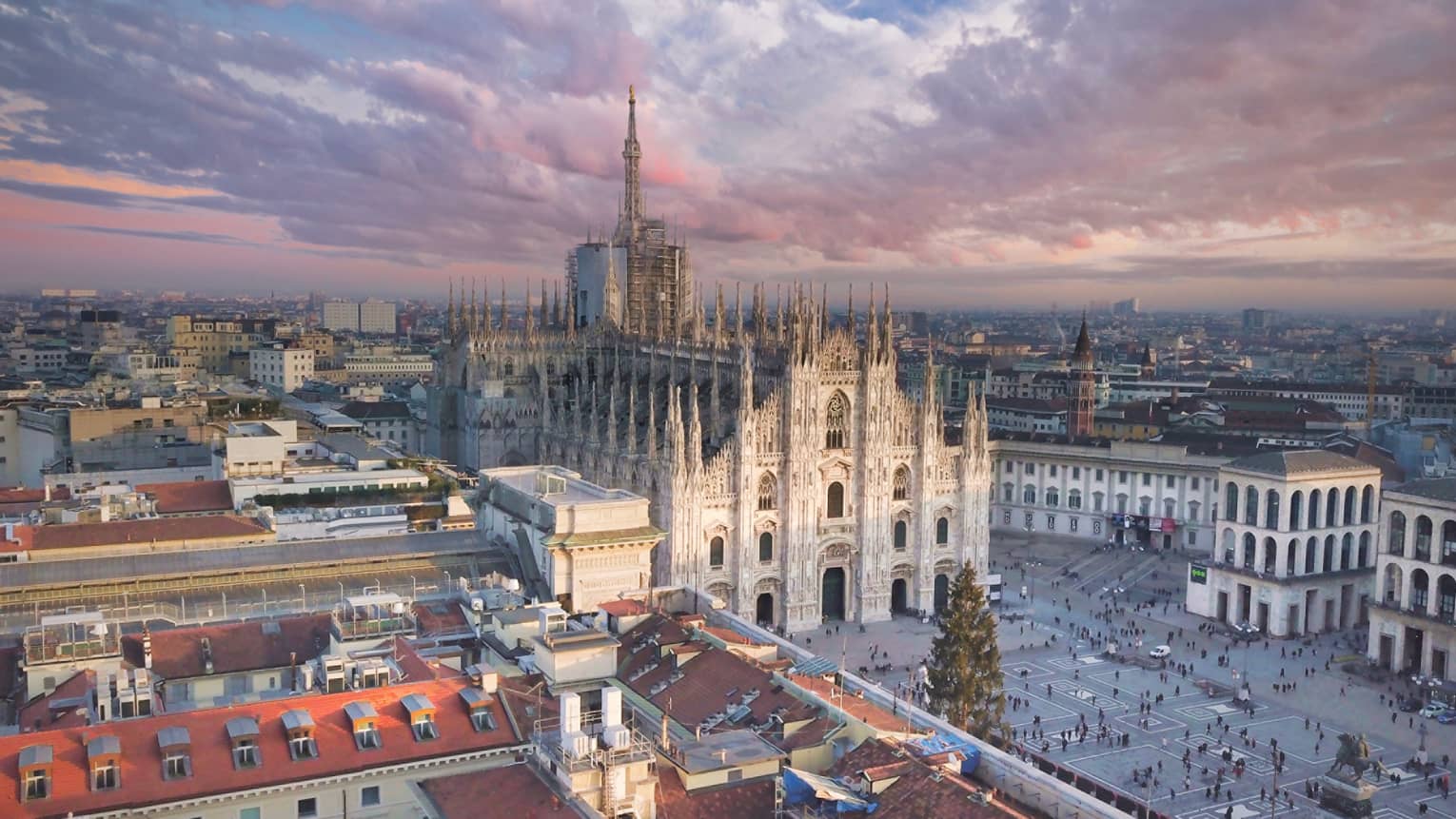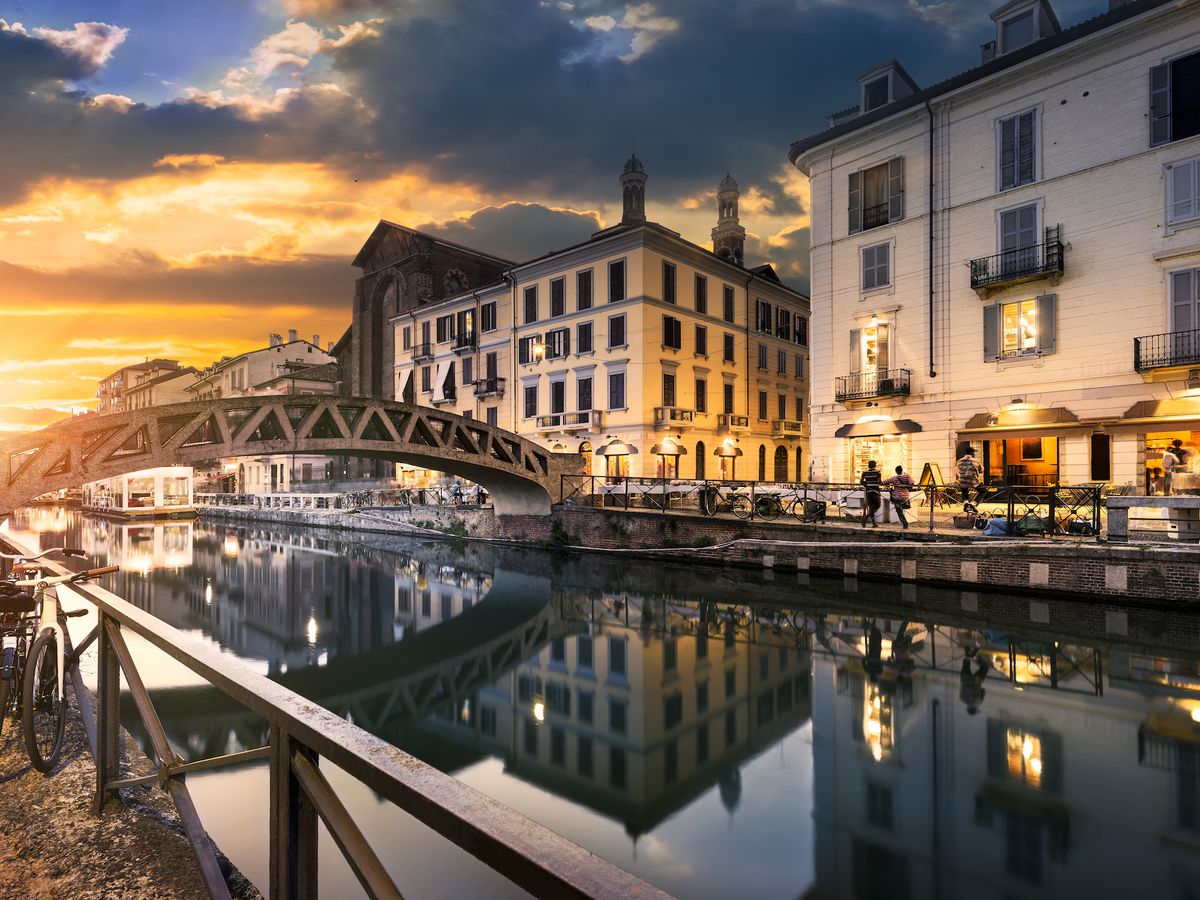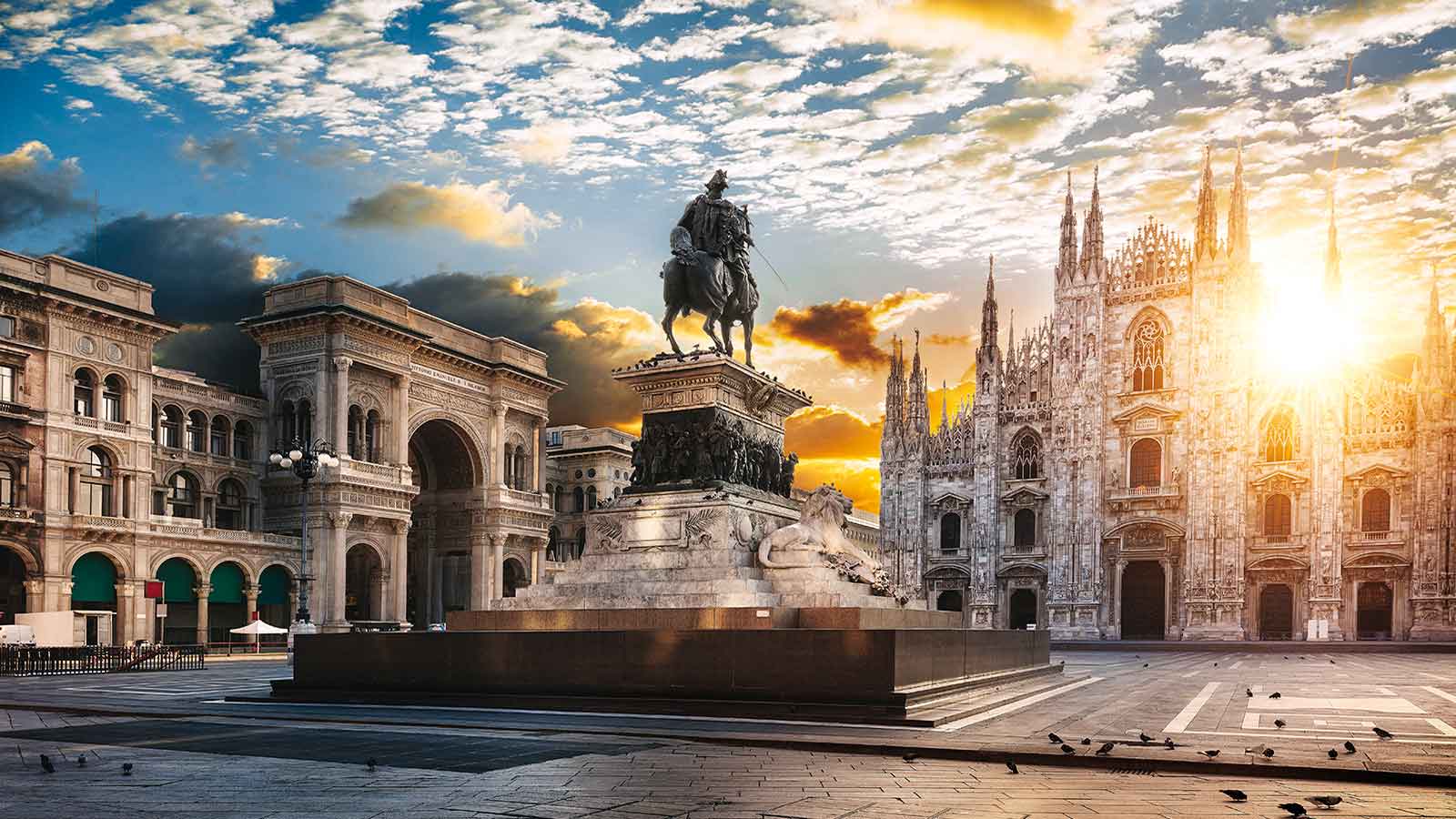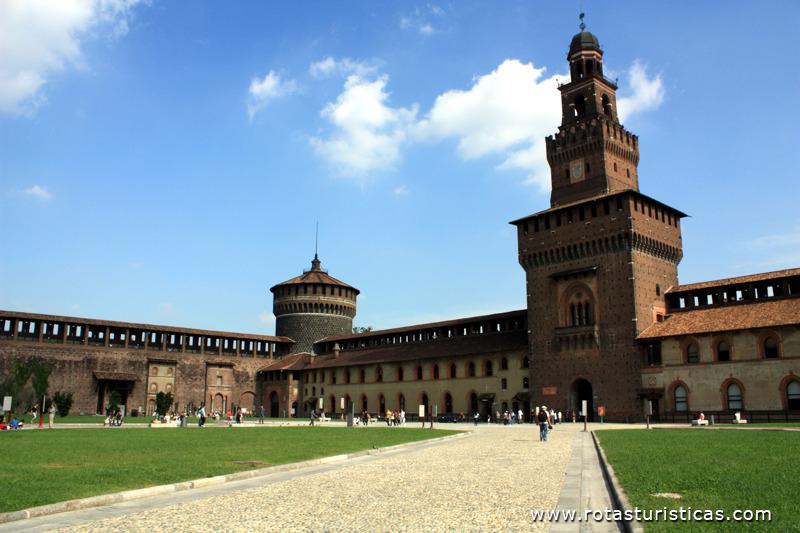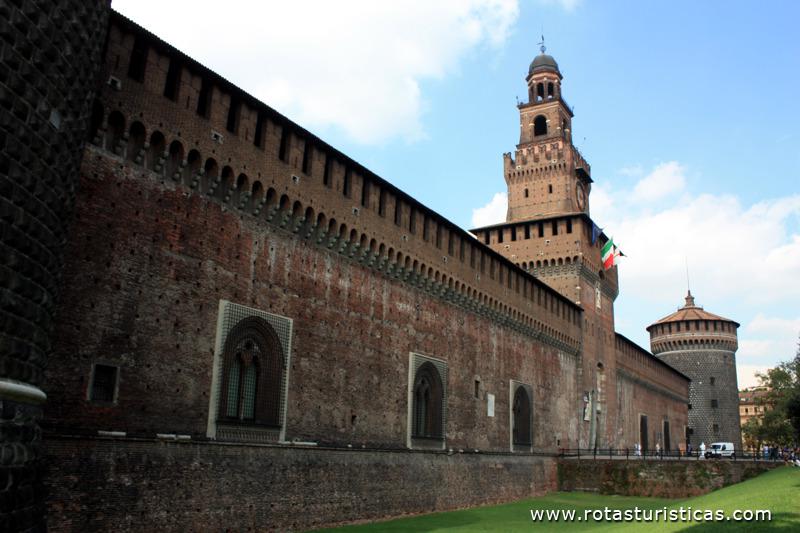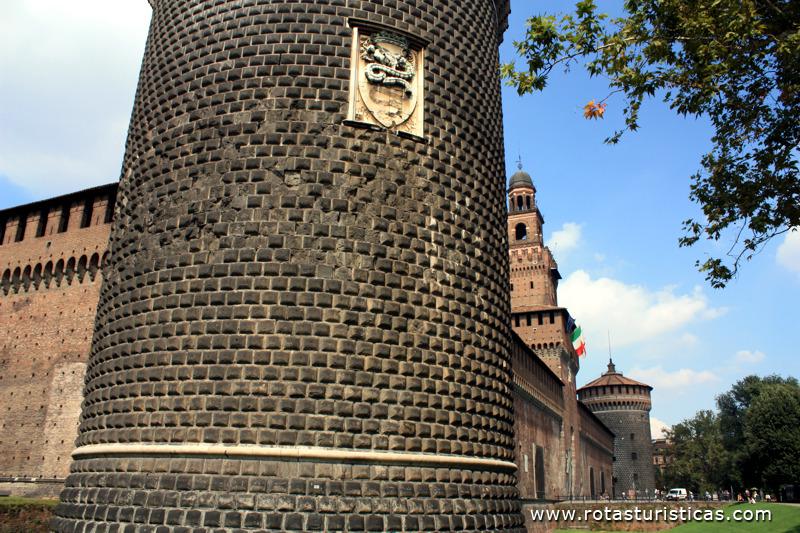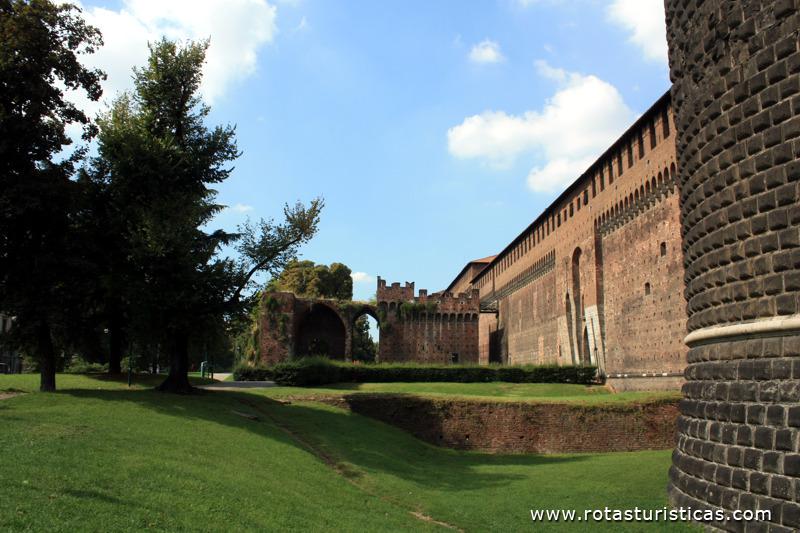Pictures of: Milan, Italy
Location map
Airports
Hotels and other Accommodation
What to visit
Where to Eat
Where to have fun
Consulates & Embassies
World Nomads
The Travel Insurance with the largest coverage

The Travel Insurance with the largest coverage

Milan
Milan is the second most populous city in Italy and the capital of Lombardy.
The massive suburban sprawl that followed the 1950-60 post-war boom and the growth of a vast suburban belt suggest that socio-economic links have expanded far beyond the boundaries of their administrative boundaries and agglomeration, creating a metropolitan region of 7-9 million people, stretching over the provinces of Milan, Bergamo, Como, Lecco, Lodi, Monza and Brianza, Pavia, Varese and Novara. It has been suggested that the metropolitan region of Milan is part of the so-called Blue Banana, the area of Europe with the highest population and industrial density.
The city holds a strong position as the capital of the Province of Milan as well as the regional capital of the Region of Lombardy. While Rome does not take advantage of its position as the administrative capital of Italy, Milan makes presence felt strongly in many areas, especially in the fashion industry. Along with the powerful names of Paris, New York and London, Milan is known as one of the world's fashion capitals. The heart of Italy's financial center is in Milan, with the National Stock Exchange located in the city. The urban look of the city can not exactly turn heads as do other Italian cities that have a long Roman history emotionally involved with them. However, fashion shows, nightlife, Italian food and the Milan metropolitan area provide the futuristic perspective of Italy, which attracts many young people. In addition, it is like a base camp to explore northern Italy's tourist towns that include the Alps.
Milan may erroneously represent itself as an expensive destination, which is not true.
The massive suburban sprawl that followed the 1950-60 post-war boom and the growth of a vast suburban belt suggest that socio-economic links have expanded far beyond the boundaries of their administrative boundaries and agglomeration, creating a metropolitan region of 7-9 million people, stretching over the provinces of Milan, Bergamo, Como, Lecco, Lodi, Monza and Brianza, Pavia, Varese and Novara. It has been suggested that the metropolitan region of Milan is part of the so-called Blue Banana, the area of Europe with the highest population and industrial density.
The city holds a strong position as the capital of the Province of Milan as well as the regional capital of the Region of Lombardy. While Rome does not take advantage of its position as the administrative capital of Italy, Milan makes presence felt strongly in many areas, especially in the fashion industry. Along with the powerful names of Paris, New York and London, Milan is known as one of the world's fashion capitals. The heart of Italy's financial center is in Milan, with the National Stock Exchange located in the city. The urban look of the city can not exactly turn heads as do other Italian cities that have a long Roman history emotionally involved with them. However, fashion shows, nightlife, Italian food and the Milan metropolitan area provide the futuristic perspective of Italy, which attracts many young people. In addition, it is like a base camp to explore northern Italy's tourist towns that include the Alps.
Milan may erroneously represent itself as an expensive destination, which is not true.
Tourism
Milan does not have the history of Rome, the romanticism of Venice, the effervescence of Naples or the artistic spirit of Florence. But even so, and fairly, it remains one of the most famous and visited cities in Italy. Difficult to define Milan with only one adjective: located in northern Italy, closer to other countries (like France and Switzerland) than the capital Rome, the city is a cosmopolitan nook.
The second largest city in Italy, thousands are its tourist attractions. From the catwalks of one of the most famous fashion events in the world to the frescoes painted by geniuses inside the churches, the visitor will have much to admire in the city. In Milan there is the Holy Supper of Leonardo da Vinci, the San Siro / Giuseppe Meazza Stadium, the statues of the Duomo, the restaurants of Navigli, the theater Alla Scala, the Castle Sforzesco. A walk through its streets involves high doses of religion, football, art, gastronomy and history. Prioritizing one of the themes or putting everything in the same package will be the responsibility of the visitor.
It will also be the tourist's choice to make the journey in a luxurious or economic way. Milan is home to some of Europe's most expensive hotels and restaurants, but it also offers good options for those on a tight budget. Public transportation is cheap, there are good low-cost hotels and pizzerias offer well-priced and well-served dishes. In addition, there are discount card offers: when you buy them, the tourist can enter some museums for free and get on the subway and buses without paying anything.
In town, enjoying the famous Italian dolce vita is a guaranteed program.
The second largest city in Italy, thousands are its tourist attractions. From the catwalks of one of the most famous fashion events in the world to the frescoes painted by geniuses inside the churches, the visitor will have much to admire in the city. In Milan there is the Holy Supper of Leonardo da Vinci, the San Siro / Giuseppe Meazza Stadium, the statues of the Duomo, the restaurants of Navigli, the theater Alla Scala, the Castle Sforzesco. A walk through its streets involves high doses of religion, football, art, gastronomy and history. Prioritizing one of the themes or putting everything in the same package will be the responsibility of the visitor.
It will also be the tourist's choice to make the journey in a luxurious or economic way. Milan is home to some of Europe's most expensive hotels and restaurants, but it also offers good options for those on a tight budget. Public transportation is cheap, there are good low-cost hotels and pizzerias offer well-priced and well-served dishes. In addition, there are discount card offers: when you buy them, the tourist can enter some museums for free and get on the subway and buses without paying anything.
In town, enjoying the famous Italian dolce vita is a guaranteed program.
Gastronomy
Milan is one of the most cosmopolitan cities in Italy and offers cuisine from all over the world. The neighborhoods of Brera and Navigli are especially interesting and concentrate a lot of restaurants and bars. Establishments that prepare Italian food usually serve their clientele in parts: first the "antepasto", then the "primo piatto" (usually a pasta), followed by the "secondo piatto". But the customer can choose only one or two of the options.
Some of Milan's most traditional dishes include risotto and polenta, but the traveler is lucky enough to find typical dishes from all regions of Italy, from Sicily to Piedmont. To spend little (prices are usually high), the best choice and a well-known option for everyone is: pizza as they are cheap and well served throughout Italy.
Another good option, especially in some bars in the neighborhood of Navigli, is the appetizer (the tourist pays for the drink and is entitled to serve himself at a buffet of cold cuts, pasta and breads).
To drink, do not be afraid to order the house wine, which will almost always have good quality and will cost half the price of a labeled bottle.
Some of Milan's most traditional dishes include risotto and polenta, but the traveler is lucky enough to find typical dishes from all regions of Italy, from Sicily to Piedmont. To spend little (prices are usually high), the best choice and a well-known option for everyone is: pizza as they are cheap and well served throughout Italy.
Another good option, especially in some bars in the neighborhood of Navigli, is the appetizer (the tourist pays for the drink and is entitled to serve himself at a buffet of cold cuts, pasta and breads).
To drink, do not be afraid to order the house wine, which will almost always have good quality and will cost half the price of a labeled bottle.
Weather
Winter in Milan is relatively light but hazy, with temperatures ranging from zero to 8 ° C. Summer can be very humid with brief storms.
Temperatures range between 14 and 29ºC. From March to April temperatures range from 6 to 18 ° C. From October to November, they range from 6 to 17 ºC.
Milan is located in the Mediterranean area, and its climate is typical of this region. The weather can be very hot during the summer, while during the winter temperatures drop dramatically.
The humidity is quite high throughout the year.
In July and August, it is normal to have temperatures over 30 ° C. Usually summers are hot and humid.
Winter temperatures are generally between 0 ° C and 10 ° C, and occasionally drop to -10 ° C, with a little snow every year. Winters are usually very cold with haze.
In spring and autumn, temperatures in Milan are the most pleasant of the year, but are characterized by highly changeable weather conditions with the most frequent precipitation in September and October.
Temperatures range between 14 and 29ºC. From March to April temperatures range from 6 to 18 ° C. From October to November, they range from 6 to 17 ºC.
Milan is located in the Mediterranean area, and its climate is typical of this region. The weather can be very hot during the summer, while during the winter temperatures drop dramatically.
The humidity is quite high throughout the year.
In July and August, it is normal to have temperatures over 30 ° C. Usually summers are hot and humid.
Winter temperatures are generally between 0 ° C and 10 ° C, and occasionally drop to -10 ° C, with a little snow every year. Winters are usually very cold with haze.
In spring and autumn, temperatures in Milan are the most pleasant of the year, but are characterized by highly changeable weather conditions with the most frequent precipitation in September and October.
Other tourist destinations in:
Italy
Italy
Other world tourist destinations
Why to book with
The best prices
Our partnerships with the world´s largest operators offer research on the best market prices.
More options
At Rotas Turisticos you can book the hotel, buy the air ticket, book the transfer from the airport to the hotel and vice versa, book the local excursions, rent the car, take travel insurance and consult the places to visit and where to go.
Holiday Tips & Destinations
Hundreds of holiday destinations with all the options that allow you to easily choose the destination that best suits your dream vacation.
Links

